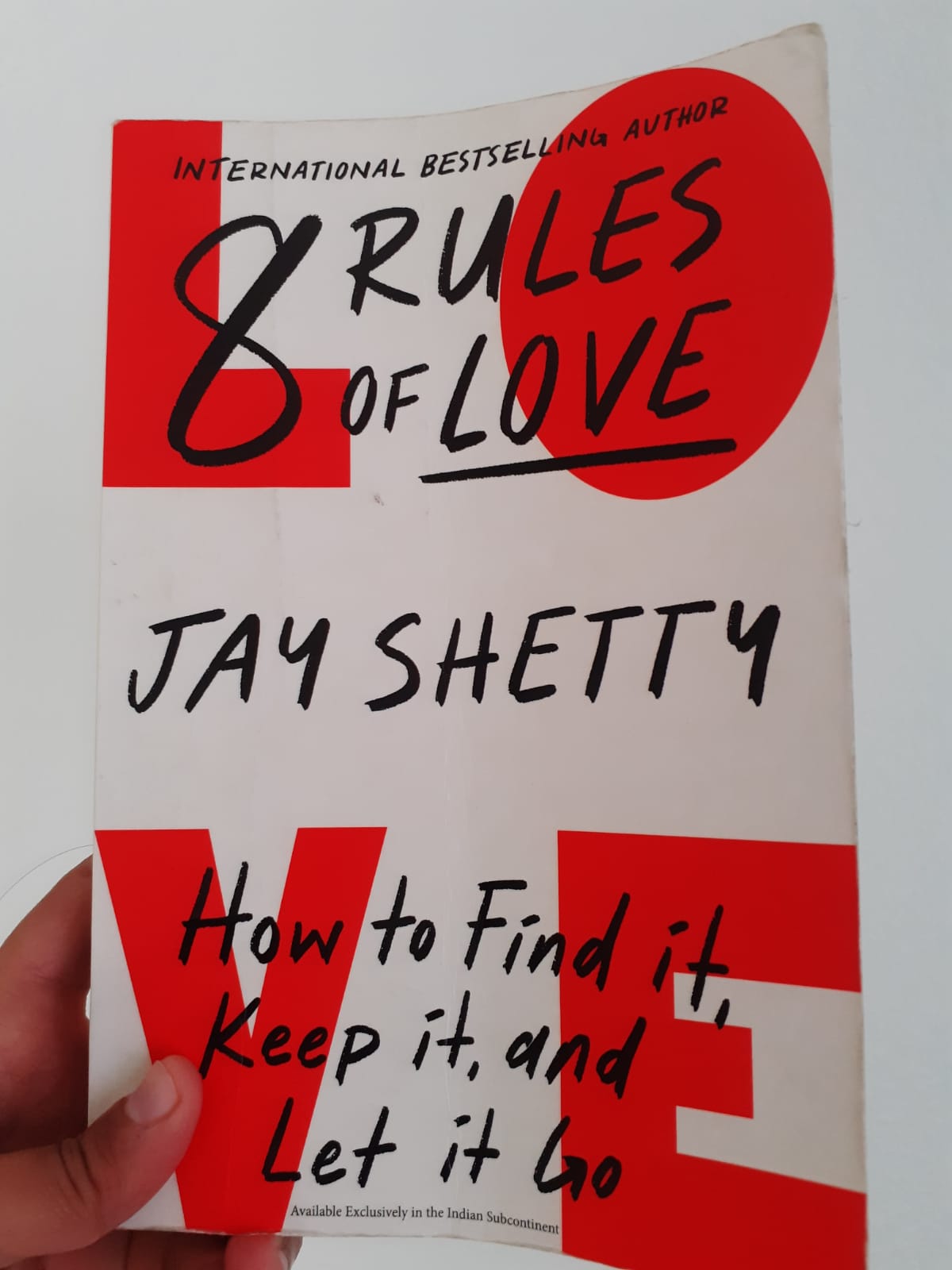
This year I have been a bit slow with books in general for some personal and professional movements in life. Jay Shetty’s ‘8 Rules of Love’ has been on my TBR list since last year, or probably ever since its pre-release promotions. I liked his first book ‘Think like a Monk’ which I had randomly picked while surfing in a bookstore. It brought along some contemporary insights into the ancient texts as applicable to the modern lifestyle. It turned out to be an immersive read for me eventually.
I have been following Jay Shetty and Radhi on social media, and they have done a good job marketing the book. And so I was curious to understand how and in what ways he connects and presents the most used and misused emotion/word/action (LOVE) in association with the Bhagavad Gita.
In this book, Jay strategically lays down some eight rules of love, in line with the four ashrama/stages described in the Vedic texts for a human’s life – Brahmacharya (preparing for love), Grahasta (practicing love), Vanaprastha (protecting love), Sannyasa (perfecting love). Now, we all try to decipher this emotion in our ways, every time throughout our lives, through different relationships, and formulate our principles and rules during the process.
So if you are thinking why learn from someone else’s experiences when you have multitudes of awareness about it, you need to rethink. We do discuss our issues with our loved ones and friends. They do nothing but add their perception and try to clear our doubts. Treat this book like that friend and let it talk to you. That’s why, I would recommend this book to anyone across diverse age groups, and cultures to give it a read – the least it will do to you is that it will structure down your already existing thoughts about love and draw some outline for your future approach.
I won’t go much into the details of the chapters but the rules are categorized into four segments namely, solitude, compatibility, healing, and connection. It starts with loving yourself, and ends with loving everybody – and of course everything in between. Besides, quoting the Bhagavad Gita, Jay often quotes real incidents from the life of his clients, learnings from celebrities, and tosses some short stories here and there that goes with the context. Although the book is written in an engaging style, I honestly had to take a break in between; I found some of the writing in the book not just monotonous but also repetitive from the content I had already consumed from his social media handles. But if you are a first-time Jay Shetty reader, haven’t heard from him yet, and have some inclination toward ancient Vedic literature, you probably would find this book interesting.
The best part for me in the book is when Jay builds the foundation initially about solitude and finding love for oneself. I guess most of us somehow manage to love and cope with others, and we do not find time to connect and understand ourselves first. That’s basic, yet difficult and rarely taught and considered. However, I found the conflict management part of the book quite idealistic. We all have our styles to handle conflicts, and it’s better if we improvise in our natural approaches otherwise it all seems only a well-rehearsed act. But that’s only my opinion, you can read and decide for yourself what works for you.
Each chapter in the book is filled with ‘Try This’ activities and every segment ends with a sample ‘Love Letter’ to self, partner, or for a reason. All of this kind of interrupted my reading flow. Plus I think it’s all too subjective as well. It could have worked better for me in a live workshop than in a book.
But I was extremely happy to see the end notes that mention some 265 references. You may choose to mark a few of your interests for further reading.
To end with, let me share a few lines from the book that I’ll dwell upon for some time:
“We feel like we have to agree for there to be connected, but we can disagree and still connect. We need to disagree in order to connect”
“I want you to recognize that when your relationship crumbles, you are not what’s breaking….Your expectations of your partner are breaking. What you thought you were building with them is breaking…Something is breaking, but you are that something.”
“Closure is something you give to yourself.”
“People aren’t always aware of their mistakes. They often haven’t clarified the situation for themselves.”
There cannot be one way or approach or the right way to love. We all have been working around the emotion all our lives, and yet we see no master of it. Love is how you evolve toward your partner, yourself, family, community, world and even beyond. Unlearning is an important skill according to me and we all have our skills. Use this book as a tool in a way that best suits you.
Written by: Nazneen Siraj Kachwala
(this writeup was originally published on nazneenkachwala.wordpress.com)
Leave a comment